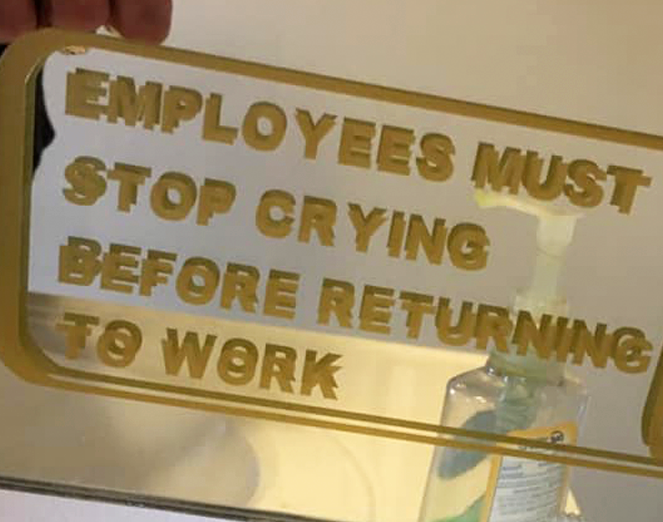- cross-posted to:
- [email protected]
- cross-posted to:
- [email protected]
Just heard the interview on NPR. Worth a read.
Canadian here. No, you fucking dont. We basically have 2 major players (Loblaws and Sobeys), and they were caught red-handed fixing the price of bread a few years ago, and faced next to no punishment for it.
Let them eat cake
Let them eat
cakethe rich.
There’s no good argument in allowing mergers of companies that are already large enough to be publicly traded at all.
Honestly the whole private shareholder parasite that produces nothing, aside from the chips from their last trip to the exploitation casino, and demands and gets almost every net cent of profit produced is the root cause of most of humanity’s great crises. Value/capital earned/made should be tied largely to the quantity/quality/expertise of contributed LABOR, not passive speculative investment, aka gambling, often with loaded market pressure dice and marked insider information cards.
There’s a damned good reason, prior to the Reaganomics/Jack Welch giveaway, that the normal business model was customers first, employees second, investors third: because without the first two no one makes anything, and the third only consumes and demands like petulant infants demanding a baba.
Now it’s investors first and only, which is not sustainable, just look around at all the mergers enshittifying every economic sector’s ability to produce the goods and services they existed to provide in the first place.
(not) > allowing mergers of companies that are already large enough to be publicly traded at all>
That’s a great way of putting it. I’ve said that once you own X market share or produce X revenue, mergers should not be allowed. No innovation or competition comes from letting giant companies devour their rivals. I like your line in the sand better.
No innovation or competition comes from letting giant companies devour their rivals.
Exactly! It only helps people with too much already hobble competition to pocket even more for themselves at society’s direct expense at those levels, while completely discrediting the primary supposed core tenant of capitalism we’re indoctrinated from childhood to believe it provides: competition.
Civilization has been propagandized to forget that economies aren’t supposed to exist to maximize capital extraction for private investors at society’s expense, an economy is supposed to be a lowly tool of a society used to maximize the efficient and equitable distribution of goods and services within a society for the benefit of said society.
The tail is wagging the dog, and captured world governments loudly declare during any crisis that they will use all the power at their disposal to protect the well being of their beloved
societieseconomies.Just dwell on how perverse that ideology is. The entire point, the well being of human beings, is lost.
Institutions survive long after their meaning has been lost. All of recorded history is nearly this identitical power struggle with abstractions applied as time goes on. We have been at this for nearly as long as society has existed. I have small hopes at this point, even our schools exist to prepare children for the factory line. We are so far down this backwards path it might kill us to turn around.
deleted by creator
If corporations are people then mergers are cannibalism and subsidiaries is slavery.
One of many industries that needs more anti-trust enforcement.
Someone dig up Robert Bork and tell him that he was wrong and an asshole
And slouch towards Gomorrah!? No thank you.
Our consent is immaterial. That’s how cartels work.
Conagra
We already have a bunch don’t we? Large food companies under many brands selling to a limited number of supermarket chains?







